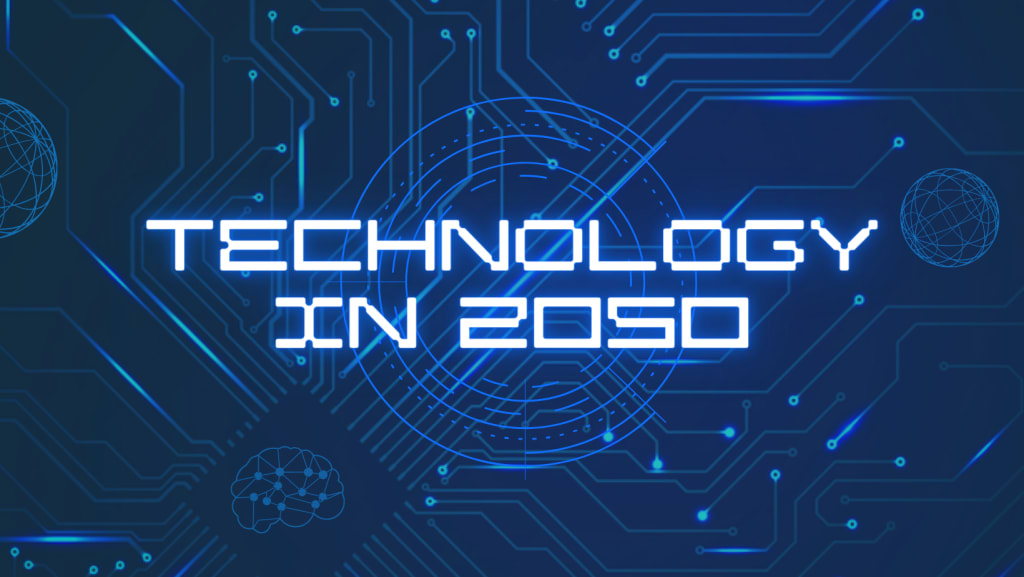Life in 2050
How life Will Look Like In 2050

Since the turn of the century, technology has rapidly improved, transforming our reality with innovations that were mere dreams in the past few decades. Reflecting on these advancements, I grew curious about what the next 30 years might hold, so I delved into what life might look like in 2050. Let's take a look at some potential technological developments.
Nanotechnology
Over the years, scientists have made exciting developments and discovered numerous innovative applications for nanotechnology. Experts believe that in the future, nanobots will be fitted into our brains to connect us to the virtual world more readily and faster with brain-computer interface technology. This fusion of mind and computer could make humans very powerful beings with access to endless information and solutions to complex problems. If nanotechnology reaches this stage, there may be no need for gadgets like phones and calculators.
3D Print Technology
The next tech advancement we can expect in the future is the rise of 3D print technology. Already quite advanced, 3D printing will likely be even more sophisticated by 2050. Currently, we have 3D-printed tools and homes, but future advancements might allow us to print more complex objects, possibly even transportation modes. This technology will also become more accessible, with everyone potentially owning a 3D printer, making the possibilities of what can be printed endless. If open-source 3D printable files continue to proliferate, we might all be printing our own large objects, like furniture and even weapons. An intriguing idea is the development of an affordable 3D printer for food, which could help end world hunger.
Transportation
By 2050, transportation will have dramatically changed. Experimentation with self-driving cars is already underway, and it's not a stretch to believe that fully automated vehicles will exist by 2050. These vehicles could drastically reduce traffic-related deaths and change lifestyles by freeing people to relax or be productive during travel. Elon Musk's Hyperloop One project aims to revolutionize public transportation by moving it underground using electromagnetic levitation at historic speeds of 310 kilometers per hour. This could offer a faster, cheaper, and cleaner mode of transportation, reducing traffic-related incidents.
Renewable Energy
Still on transportation, future modes of transportation will likely use renewable energy. Currently, the world is plagued by global warming and depleting natural resources, so a shift to more sustainable energy sources is crucial. Hyperloop One is exploring electromagnetic levitation, and the automobile industry is looking for ways to reduce vehicle emissions. Research is also being done on the ocean's wind, solar, and thermal energy. One company, Bluerise, is developing ocean thermal energy conversion, which could eventually phase out fossil fuels.
Space Exploration
Space exploration and colonization have been proposed as solutions to our environmental challenges. Companies like SpaceX and Blue Origin are revolutionizing space technology with goals of enabling people to live on other planets. By 2050, space tourism might be a reality, expanding holiday destinations to Mars and the moon. However, trips to orbit will likely remain expensive and exclusive initially.
Artificial Intelligence
Artificial intelligence, already more advanced than many other technologies, will continue to improve. Experts believe that AI will surpass the processing power of human brains, though this brings the challenge of ensuring AI embodies important human values. AI's rise will significantly alter the workforce, with many jobs potentially becoming obsolete by 2050. This interconnected, data-driven world will necessitate career changes for many people.
The Metaverse
The metaverse, a virtual reality environment where users interact through AI-enabled software, is another area of significant development. By 2050, the metaverse could offer a full virtual experience, allowing people to shop and travel virtually from home. This increased connectivity might paradoxically lead to greater physical separation.
In conclusion,The world will undoubtedly be very different by 2050,and our societal systems must adapt to cope with these innovations. What do you think of these future developments?Do you believe this is what life will look like in 2050?
About the Creator
Ummay Habiba Aishee
I dream as long as I sleep .
Enjoyed the story? Support the Creator.
Subscribe for free to receive all their stories in your feed. You could also pledge your support or give them a one-off tip, letting them know you appreciate their work.






Comments (1)
I don’t think most people would want a chip inserted. Nice job on this article. Any of these items will require regulation/oversight because, you know, humans can be evil. 🧐